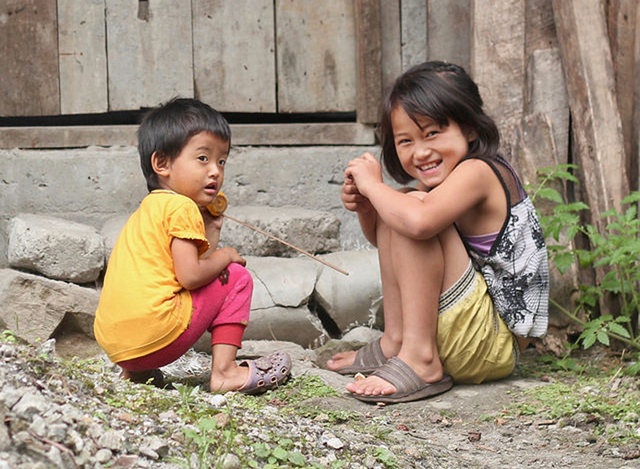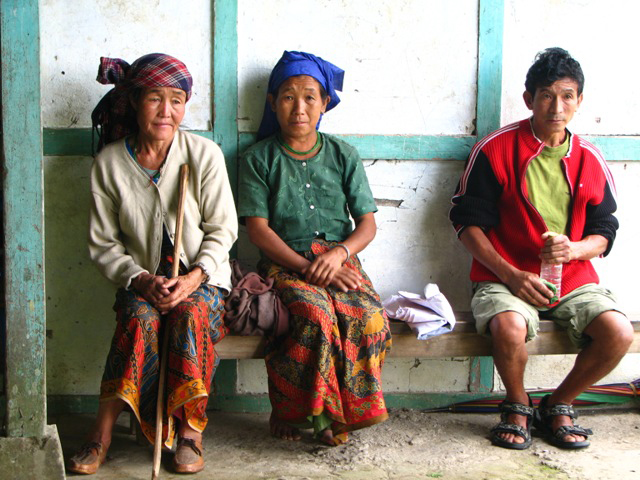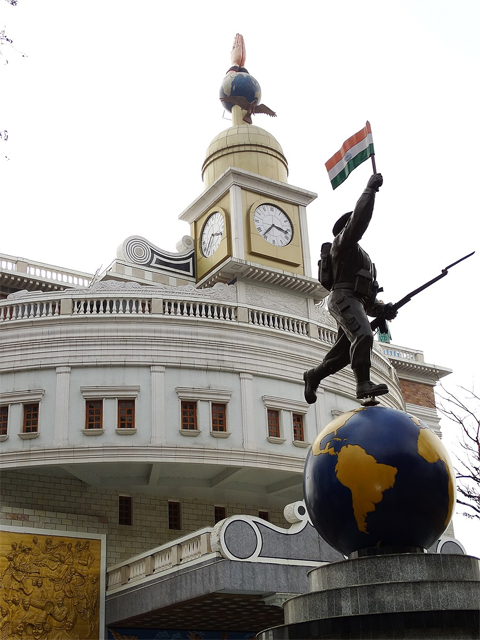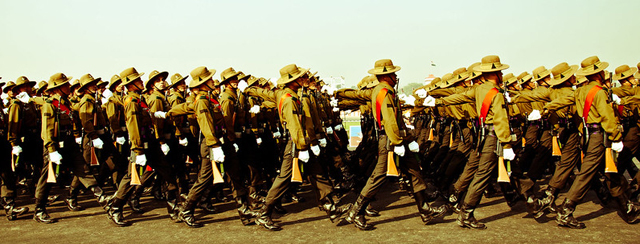Mamata Banerjee, the Chief Minister of India’s West Bengal state, has roiled the political scene in Northeast India by expressing her opposition to India’s National Register of Citizens (NRC). The Lepchas in the state have allied themselves with the Chief Minister in opposition to the controversial law.

The NRC, a register of all citizens of India maintained by the national government, was first prepared for just the people of Assam, another state in Northeast India, in 1951 but it was mostly ignored until recently when the government began to update the listing of citizens in that state.
This process upset the Chief Minister of West Bengal, who led a demonstration in Kolkata in early September opposing any extension of the law. The Trinamool Congress, Banerjee’s party, opposes the NRC partly on political grounds—it is supported by the BJP, the party in power in New Delhi. Of more substance, Trinamool Congress members claim that huge numbers of “genuine Indians” were excluded from the new register prepared for Assam and that the new list reflects “extreme bias.”
The Lepchas, grateful for the support that Banerjee has provided for them over the years, enthusiastically joined her in opposing the NRC. A news story on November 10 reported that the Lepcha organization Shezoom has decided to support Ms. Banerjee’s anti-NRC position. The Shezoom statement indicated that the Lepchas “don’t want any disruptive exercise in the hills.”

On November 17, Shezoom organized a very large demonstration in Kalimpong, a town in the northern part of West Bengal, to show their support for the Chief Minister and her opposition to the NRC process. The rally concluded with a large public gathering at which Lepcha leaders pledged their continuing support for the Chief Minister.
They were not hesitant to remind people that they were still waiting for a government body that would focus on ways to help develop the Lepcha communities. They hoped the state government would respond to their needs shortly. Shezoom called for another march on December 1 plus a mass signature campaign in the Darjeeling and Kalimpong districts of the state.
The willingness of the Lepchas to participate in the political process through peaceful demonstrations and marches has been shown several times in recent years. It appears to be an integral aspect of their culture, as a review of the news stories will show. For instance, in 2013 the Lepchas with their peaceful ways had to handle a conflict with the Gorkhas, a larger group originally from Nepal who are steeped in militarism and violent responses to disputes.

Early in 2013, the Chief Minister met with members of the Lepcha community in Kalimpong, a meeting that prompted Bimal Gurung, the leader of a major Gorkha organization, to declare that the Chief Minister had a divide and rule policy. The Gorkhas resented any implication that the Lepchas might have their own needs.
Mr. Gurung was not in the least subtle in his response to the meeting: “You must be ready for the next phase of the agitation. Bullets will fly. We are ready to face police bullets as this is what they will do. She [the Chief Minister] will send in the police force and their bullets, she will reopen old cases (against the agitators), we know all about it and we are ready to take bullets to achieve statehood,” he declared. The major demand of the Gorkhas was for a state of their own, independent from West Bengal.
Ms. Banerjee announced at a news conference on January 31, 2013, her decision to honor a request from the Lepcha people to form a Lepcha Development Board, which will work for the development of the Lepchas living in the hills of West Bengal. Details about the board were to be announced later, but the chair and vice chair would be appointed from within the Lepcha community. The Chief Minister’s proposal was approved by the state cabinet on Tuesday, Feb. 5, 2013.

The Gorkhas reacted with great hostility to the announcement. Mr. Gurung announced a 12 hour, dawn to dusk, general strike in Darjeeling and adjoining regions for Saturday, Feb. 9. He sought to lay the blame for any violence that might develop from the shutdown on the government. He said, “Our agitation will be peaceful but the government will try and make it violent.” He blamed the Chief Minister of the state. “It looks like Mamata Banerjee is inviting us to start an intensified Gorkhaland agitation….It seems she has no intention of normalizing the situation and is hell bent on disturbing the harmony.”
Lepcha activists decided to launch an action of their own. The Lepcha Rights Movement began an indefinite hunger strike in the town of Kalimpong to show support for the government’s decision to form the Lepcha Development Board. The 12 hour strike by the Gorkhas in Darjeeling virtually shut down that town, but the threats of violence did not materialize, and of course the hunger strike by the Lepchas was peaceful. But violence from the Gorkhas continued to threaten the Lepchas—and the government.
Matters became more serious in March 2013 when a meeting of 10 to 15 Trinamool Congress members taking place in a hotel in Kalimpong was disrupted by a group of thugs. Just as the Trinamool members were about to hold a news conference, around 30 people, believed to represent the youth wing of the Gorkha movement, assaulted them with sticks and iron rods. Two people were injured, four of the attackers were arrested, and the police reportedly attempted to catch the others.

Some of the leaders of the Bhutia and Lepcha communities in Kalimpong were targeted by the attackers. The Lepchas, who were simply asking for some development assistance from the state and were willing to endure hunger strikes to dramatize their plight, appeared from the news reports to be pawns in the power play between the government and the Gorkha leaders.
The news stories in this website about the Lepchas, and specifically the ones from 2013, provide a lot more details about the conflict that year between them, the West Bengal government, and the Gorkhas. But the underlying theme of the 2013 story is that people like the Gorkhas who accept the idea that violent approaches to resolving conflicts are sometimes necessary will at times resort to violence to satisfy their goals.
At the same time, others, such as the Lepchas, will continue to accept the Gandhian approaches: when you have an issue, speak up about it. Even demonstrate peacefully, as they have done in their opposing the NRC. But never allow violence to intrude. The Lepcha people displayed that stance again last week.